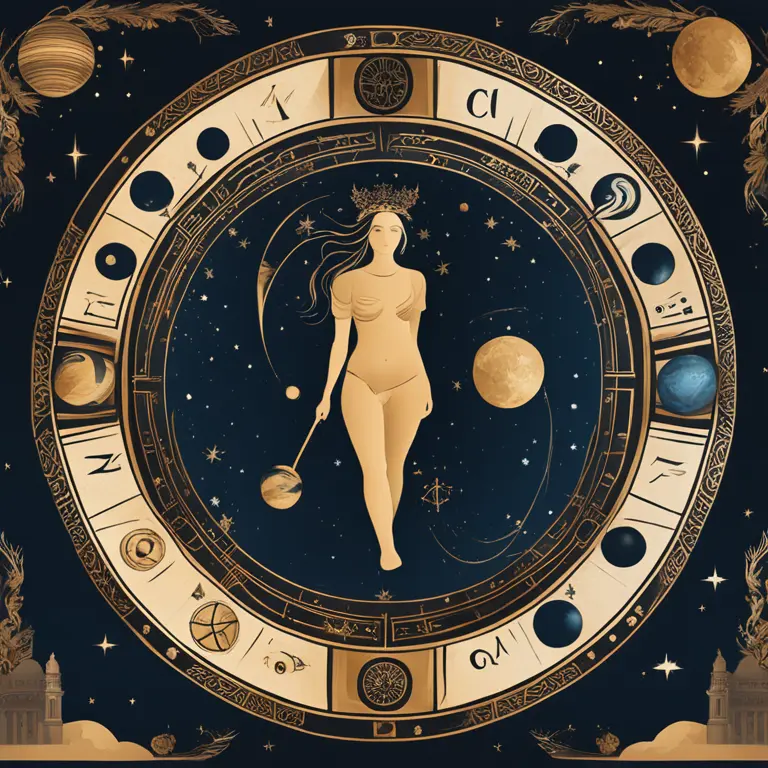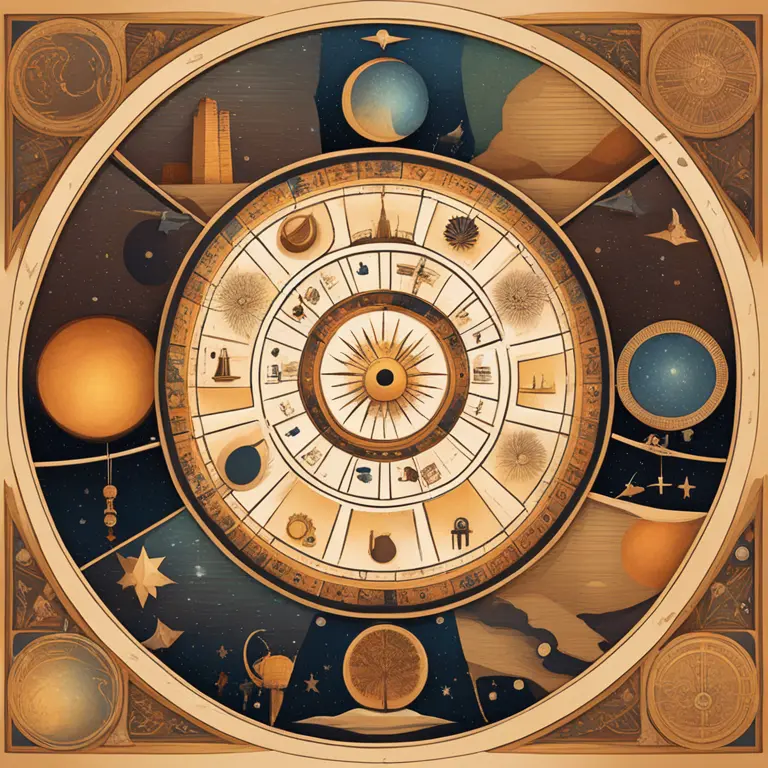
The Chronology of Astrology: A Celestial Journey
Trace the ancient origins and evolution of astrology as it intertwines with human culture and science throughout history in this comprehensive overview.
article by Priya Deshmukh
Ancient Beginnings
The history of astrology can be traced back to ancient civilizations, where celestial events were often interpreted as divine messages. The earliest records of astrological concepts date back to the 2nd millennium BCE in Mesopotamia. Babylonian astrology marked the beginning of what has evolved into the astrological systems we know today. They were meticulous in their observations of the skies, which led to the creation of the zodiac wheel, a central element in astrology that delineates the ecliptic into twelve distinct segments.

Greek Influence and Horoscopic Astrology
It was the Greeks, however, who significantly refined astrology around the 4th century BCE, integrating it with their rich mythological tapestry. The birth of horoscopic astrology, which focuses on the construction of a horoscope for an exact moment, such as a person's birth, allowed astrology to become more personal and detailed. The Hellenistic world also saw astrology being used to predict weather patterns and natural disasters, highlighting its practical applications in ancient times.

Astrology's Golden Age
The practice proliferated across trade routes, with the Islamic Golden Age (8th to 14th centuries) notably enhancing astrological knowledge. Arab scholars translated and expanded upon Greek astrological texts, leading to significant advancements in astronomical observations. Astrology's influence extended to all parts of daily life, from political affairs to medical practices, becoming an esteemed scholarly pursuit.

The Renaissance and Scientific Scrutiny
The Renaissance further melded astrology with emerging scientific thought. Esteemed figures such as Galileo and Kepler, both astrologers themselves, contributed to its development. However, with the dawn of the Enlightenment and the advent of more rigorous scientific methods, astrology began to be regarded with skepticism by the scientific community. This marked a turning point, resulting in astrology diverging increasingly from advancements in astronomy.

Modern Astrology's Transformation
Astrology experienced a resurgence in the 19th and 20th centuries, particularly with the New Age movement. Psychological astrology, which interprets celestial influence as symbolic of human psyche dynamics, has become increasingly popular. The advent of computers and the internet have also revitalized interest in astrology, making personal horoscope readings readily accessible to the public and fostering a global community of astrology practitioners and enthusiasts.
Astrology in the Digital Age
In the digital age, astrology continues to evolve. High-speed internet, mobile applications, and advances in software allow personalized astrological services to be delivered instantaneously. As we move beyond 2024, astrology is not only a spiritual guide for many but also a cultural phenomenon, intertwining with lifestyle, wellness, and entertainment sectors. Despite scientific skepticism, its popularity endures, showcasing its adaptability and resilience as an aspect of human culture.
Published: 2/13/2024
Modified: 2/13/2024
More predictions
Come back here soon to learn more about yourself and your future


Mastering Tarot Basics: A Beginner’s Guide
Embark on a journey into the art of tarot reading with our beginner’s guide, covering fundamental concepts and practical how-to steps.


The Tarot's Queen of Pentacles: A Guide to Practical Wisdom
Delve into the significance of the Tarot's Queen of Pentacles and discover how this card symbolizes nurturing abundance and material mastery in readings.


The Essential Tarot Card Meanings Guide with Images
Discover the meanings behind the mystical tarot cards with our comprehensive guide, complete with vivid imagery to enhance your understanding of each card's symbolism.